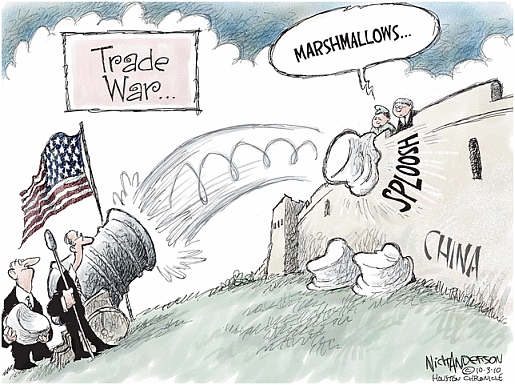What the Obama administration called a US pivot to Asia is not unique to the US – almost everyone is pivoting away from the US towards Asia and Russia. Egypt has announced that it is looking to develop increased trade with Russia in response to the US’ cutting of $300 million of aid to Cairo as punishment for the July 3 military coup. Egypt is but the most recent of a now extensive list of countries diversifying their trade portfolios in an attempt to decrease dependence on the US. These countries are looking to China in particular to pick up the slack, while using Russia to fill military needs (Jordan is one example of a country seeking to bolster its arms trade with Russia). Purportedly in response to inaction over Syria, Saudi Arabia has announced its intention to shift away from the US. China’s vast consumption of petroleum would likely provide a new home for Saudi oil. Canada has made similar moves to China, allowing the Chinese takeover of Canadian oil and energy company Nexen Inc. and has generally increased its trade missions to China, culminating in Foreign Affairs Minister John Baird’s pledging earlier this month to sign an investment deal with China “in short order.”
EU-China trade has doubled since 2003. After recently averting a trade war, the EU has proposed signing an investment pact in exchange for a promise from the Chinese not to subsidize companies competing with EU businesses. A greater surprise, highlighted in my recent article on Turkey and China, is the fact that Turkey is giving serious consideration to purchasing Chinese technology for its own ballistic missile defence system. Though it is doubtful that this will come to pass, it is indicative of Turkey’s interest in distancing itself from the US and opening up trade and investment with China.
[captionpix align=”left” theme=”elegant” width=”300″ imgsrc=”http://europe.chinadaily.com.cn/business/images/attachement/jpg/site1/20110107/0013729e3c900e9104875b.jpg” captiontext=”EU-China trade has doubled since 2003″]
There are two reasons why states are turning their eyes east and away from the US. First, the eastern (mainly Chinese) market continues to grow at a pace far beyond the US and western economies. China’s economy has been growing at a rate between 7 and 10 percent annually for the past 5 years, and is expected to continue growing at this rate in the coming years, driven by the purchasing power of its expanding middle class and business elite. By comparison, the US economy has barely returned to pre-recession levels and there is no indication that an economic boom is around the corner.
Second, the global pervasiveness of the US military and intelligence organisations has made states wary of being economically dependent on a country that could easily abuse its power. Increasingly, many countries dislike the seeming insolence and impunity with which the US has acted in international affairs, underscored by American spy tactics on friends and allies and the punishing of disobedient governments by withholding military and other forms of aid. No one wants to be reliant on a country that uses its clout so nakedly in the service of its own national interests regardless of the interests of others.
In many respects, the US is the architect of its own fate. But with the decline in American influence, what kind of world will this be? An increasingly diverse global economy, albeit still dominated for the foreseeable future by the big three—US, EU, and China. This multi-polarity could be tipped further towards China should China decide to devote increased resources to beefing up its military. For the moment, however, China is content to rely on its economic advantages to enhance its place in the world. It is also true that as long as the US maintains military superiority, there are limits to the erosion of its influence. But as we know, superpower militaries require money, lots of money.
There seems to be inevitability to the end game. Just as the US used its economic muscle in the 1980s to escalate the arms race and bring the Soviet Union to its knees, so China’s inexorable economic development will eventually sap the US of the means to continue its currently exorbitant levels of spending on the military. If the last twenty years of post-Cold War history has been dominated by the world’s only true superpower, the next twenty years will see the world order greatly transformed.




